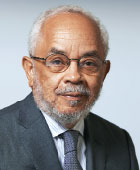In recent months, there has been intense discussion about the connection between competitive sport and mental health. The commentary, focused in large part on the stress endured by elite athletes, has coincided with major international sports events. We have had, almost in back-to-back fashion, the French Open tennis tournament, the Tour de France cycling event, the European 2020 soccer championship, and the Olympics in Japan. Naomi Osaka, a world-famous tennis champion, made the news because of her unwillingness to face the pressure of yet another news conference at the French Open. Some bystanders thought she should respect her obligation to face the public because she had committed to doing so. Others agreed the journalists were offensive. At the Tokyo Olympics, Simone Biles, the American star gymnast, evoked similar conflicting responses when she withdrew from events, citing health matters.
At the European soccer championship, France was eliminated by Switzerland. The match went into overtime and then to a penalty shootout. Kylian Mbappe, a superstar for France, missed his penalty. That outcome sent France’s players to the showers and home in disgrace. Mbappe apparently apologized to his fans for what sports writers called a failure. More sympathetic supporters urged him to keep his head up, as the day after the match would mark the debut of a new season. The three athletes I have mentioned illustrate well the stress of competitive athletics.
We follow elite athletes and how they fare on the different terrains of performance. Their annual income and lifestyle, especially in major sports, always attract our attention. Their bodies and minds serve as models of biomedical wonderment for physicians like us. Their capacity for concentration, the sacrifices they make, and their commitment teach us much about what they endure daily.
There are other features of sports that put excitement in our lives. Some years ago, my hospital organized a tournament of bed racing. We closed a street. Different divisions in the facility took a bed, decorated it, named it, and oiled its wheels. An employee, not weighing too much, volunteered to ride in the bed. A team of amateur athletic runners pushed each bed. We all spread the word about the event. The bed-race tournament was on. Every bed had its supporters. I was amazed at how much organized effort was put into this event. We had so much fun that I forgot to ask where the idea had originated. Athletics, competition, and team spirit came together and reawakened the slumbering youth in all of us, even in the bystanders.
With these wonderfully positive notions about competitive sports so present in our culture, how did the idea take root that elite athletes are the very incarnation of perfection and are obliged to meet public expectations? We must know that they make mistakes from time to time in what they do, and anxiety haunts the best of them. While performances may be breathtaking, consistently flawless performance is hard to sustain. So, why this mourning and weeping over the mistakes of our athletes and their inability to cope well with stress at every event? Why not just console and encourage them when they are facing loss, injury, and disappointing performances?
I still recall the early years in elementary school running after a soccer ball on the playground without quite knowing what to do with it. Eventually, the running was accompanied by thoughtful preparation and strategy. I remember the contentment of belonging to a group, the sense of accomplishment, learning about leadership when I captained the team, feeling the admiration of bystanders when I scored a goal. I also learned about losing in the context of competition and about the pain of a torn muscle during excessive effort.
We should urge sports enthusiasts to stop pretending that the elite athlete owes them continual brilliant performances. We should remonstrate with coaches who never prepare a substitute for the day that the star center forward on the soccer team will be unable to play. We know that sports can be pleasurable enough to evoke a kind of loyalty from fans that borders on spiritual commitment. We recognize sports’ service as antidote to the drudgery of daily life. Still, creating an idealistic vision of athletics misleads us all. There is risk in the act of living, and that includes sports. ■

